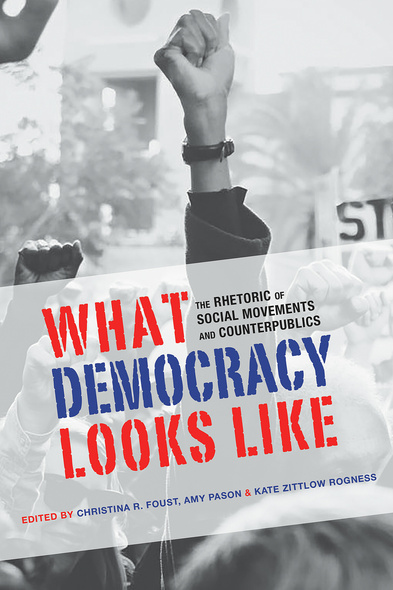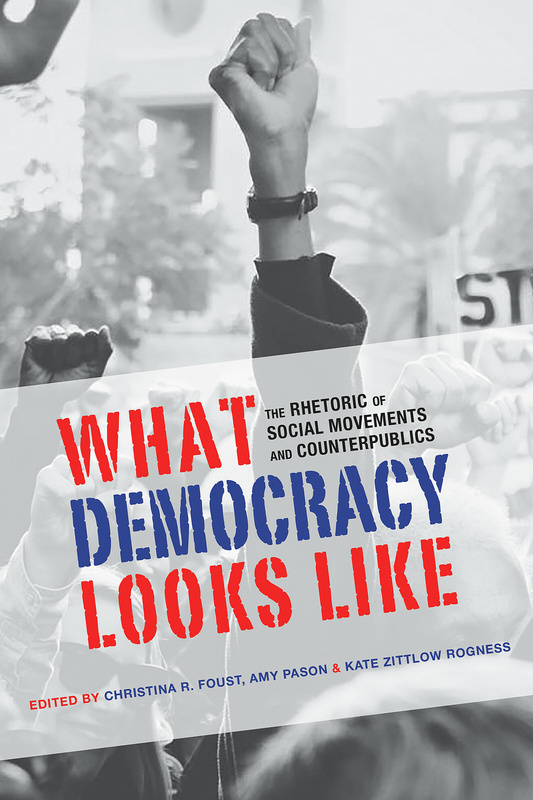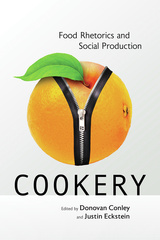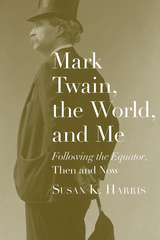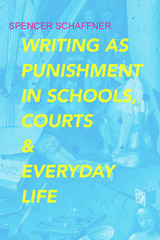What Democracy Looks Like
The Rhetoric of Social Movements and Counterpublics
Edited by Christina R. Foust, Amy Pason, and Kate Zittlow Rogness; Introduction by Christina R. Foust, Amy Pason, and Kate Zittlow Rogness
University of Alabama Press
What Democracy Looks Like is a compelling and timely collection which combines two distinct but related theories in rhetoric and communication studies, while also exploring theories and ideas espoused by those in sociology, political science, and cultural studies.
Recent protests around the world (such as the Arab Spring uprisings and Occupy Wall Street movements) have drawn renewed interest to the study of social change and, especially, to the manner in which words, images, events, and ideas associated with protestors can “move the social.” What Democracy Looks Like is an attempt to foster a more coherent understanding of social change among scholars of rhetoric and communication studies by juxtaposing the ideas of social movements and counterpublics—historically two key factors significant in the study of social change. Foust, Pason, and Zittlow Rogness’s volume compiles the voices of leading and new scholars who are contributing to the history, application, and new directions of these two concepts, all in conversation with a number of acts of resistance or social change.
The theories of social movements and counterpublics are related, but distinct. Social movement theories tend to be concerned with enacting policy and legislative changes. Scholars flying this flag have concentrated on the organization and language (for example, rallies and speeches) that are meant to enact social change. Counterpublic theory, on the other hand, focuses less on policy changes and more on the unequal distribution of power and resources among different protest groups, which is sometimes synonymous with subordinated identity groups such as race, gender, sexuality, and class.
Nonetheless, contributors argue that in recent years the distinctions between these two methods have become less evident. By putting the literatures of the two theories in conversation with one another, these scholars seek to promote and imagine social change outside the typical binaries.
Recent protests around the world (such as the Arab Spring uprisings and Occupy Wall Street movements) have drawn renewed interest to the study of social change and, especially, to the manner in which words, images, events, and ideas associated with protestors can “move the social.” What Democracy Looks Like is an attempt to foster a more coherent understanding of social change among scholars of rhetoric and communication studies by juxtaposing the ideas of social movements and counterpublics—historically two key factors significant in the study of social change. Foust, Pason, and Zittlow Rogness’s volume compiles the voices of leading and new scholars who are contributing to the history, application, and new directions of these two concepts, all in conversation with a number of acts of resistance or social change.
The theories of social movements and counterpublics are related, but distinct. Social movement theories tend to be concerned with enacting policy and legislative changes. Scholars flying this flag have concentrated on the organization and language (for example, rallies and speeches) that are meant to enact social change. Counterpublic theory, on the other hand, focuses less on policy changes and more on the unequal distribution of power and resources among different protest groups, which is sometimes synonymous with subordinated identity groups such as race, gender, sexuality, and class.
Nonetheless, contributors argue that in recent years the distinctions between these two methods have become less evident. By putting the literatures of the two theories in conversation with one another, these scholars seek to promote and imagine social change outside the typical binaries.
Christina R. Foust is an associate professor and chair of communication studies at the University of Denver and is the author of Transgression as a Mode of Resistance.
Amy Pason is an assistant professor of communication studies at the University of Nevada, Reno. Her work has appeared in the International Journal of Communication and ephemera.
Kate Zittlow Rogness teaches at Hamline University. Her work has appeared in First Amendment Studies and the Western Journal of Communication.
Amy Pason is an assistant professor of communication studies at the University of Nevada, Reno. Her work has appeared in the International Journal of Communication and ephemera.
Kate Zittlow Rogness teaches at Hamline University. Her work has appeared in First Amendment Studies and the Western Journal of Communication.

